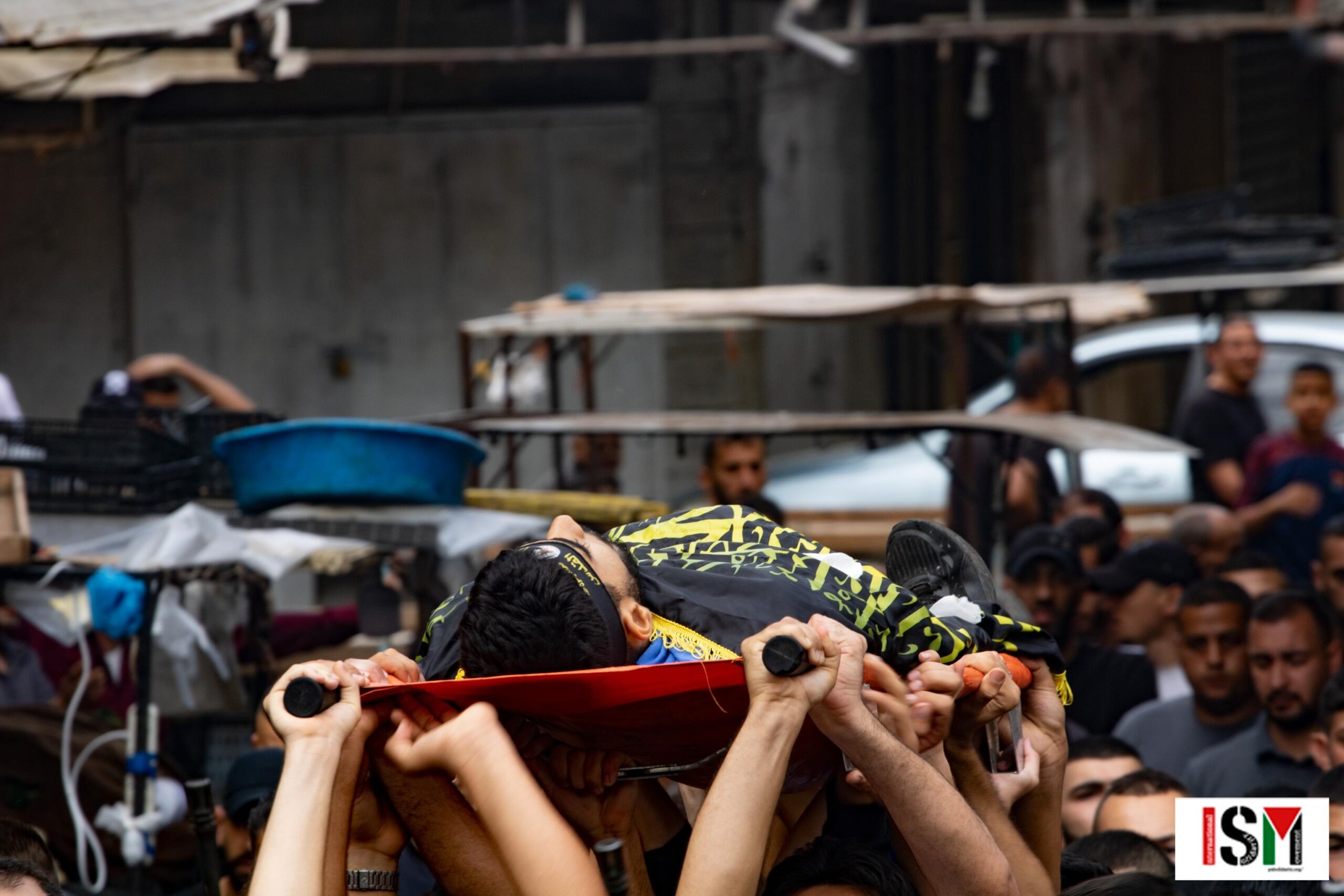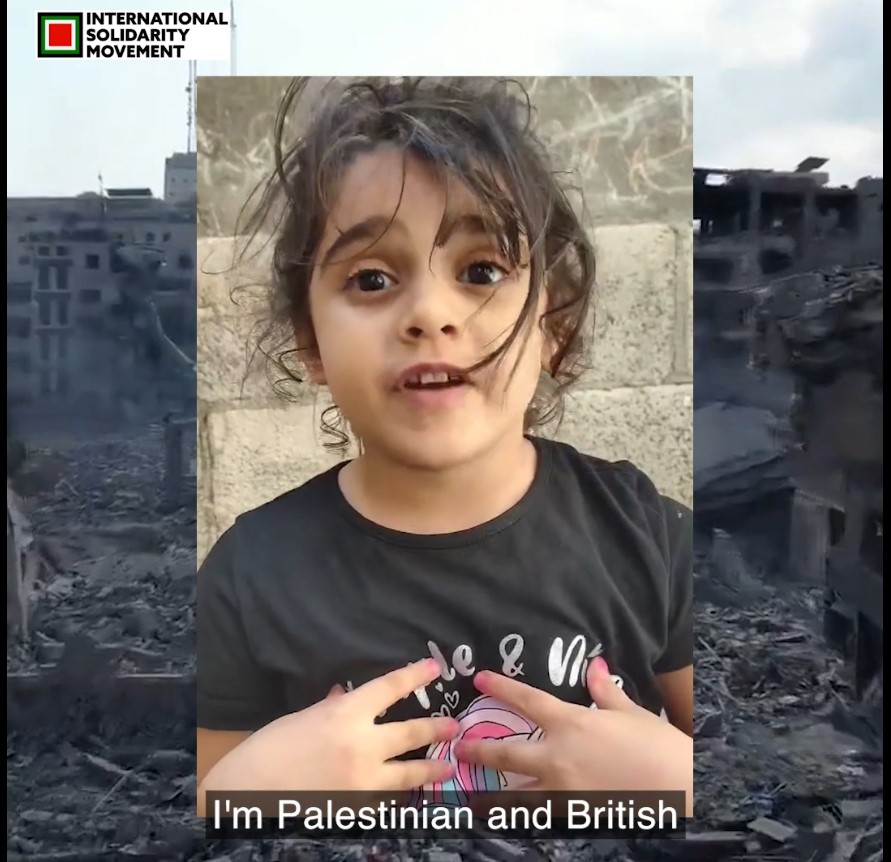Category: Reports
-
Killing young people of the next generation in the West Bank
27 October 2023 | International Solidarity Movement | Jenin By Diana Khwaelid The Israeli occupation has not only targeted unarmed young people, children, and women in Gaza. The Israeli occupation’s crimes also continue in the West Bank, especially targeting young people and children alike. On Friday night Oct 27th around 1.30AM, the Israeli occupation forces…
-
Family members of Gazan activist Ahmed Abu Artema killed in Israeli airstrike
ISM PRESS RELEASE October 27 Our friend, the poet Ahmed Abu Artema, whose social media post inspired the Great March of Return in 2018, has been targeted in an Israeli airstrike that shelled his home in Tel al Sultan, Rafah, Gaza, killing five members of his family. Ahmed was also seriously injured in the attack…
-
WATCH: British-Palestinian children in Gaza call on Rishi Sunak to stop Israel’s massacre
‘I’m scared. They keep bombing children.’ Jenna and Nur, two British-Palestinian sisters in Gaza, have called on Prime Minister Rishi Sunak to stop the bombing in a video message. Jenna is just five years old, and Nur is seven. The sisters are living under constant bombardement, and are now homeless. In 19 days of…



